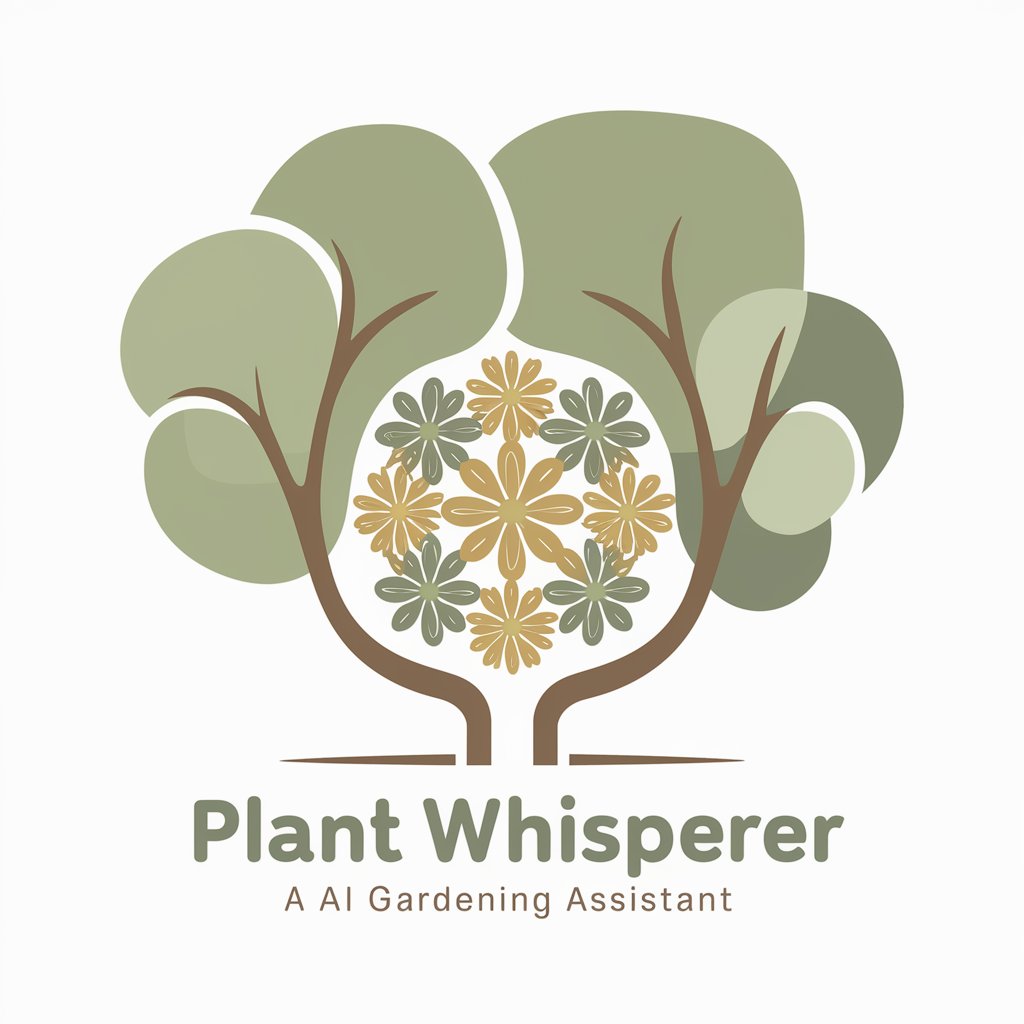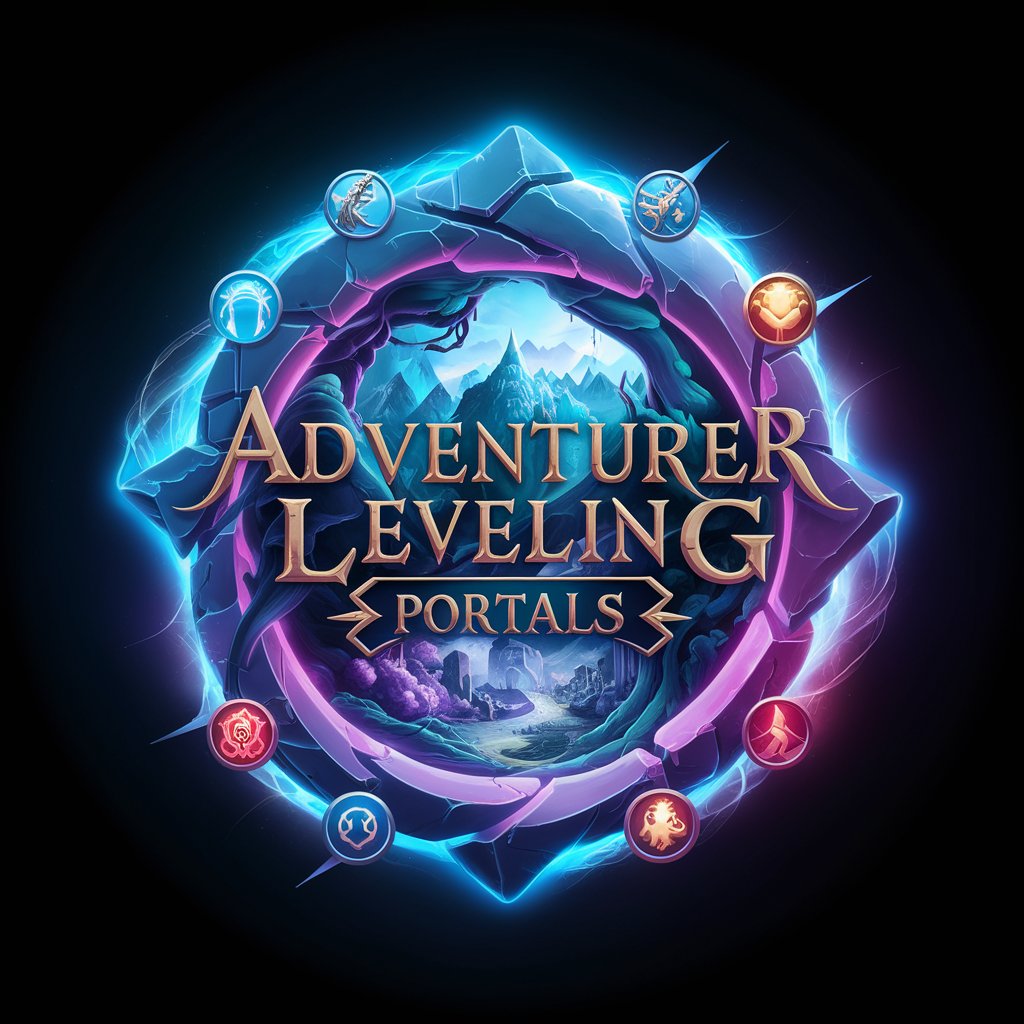
Plant Whisperer - Plant Health Analysis

Hi there! Ready to grow together?
Empowering green thumbs with AI
How can I help with your garden today?
What's going on with your plants?
Need advice on caring for a specific plant?
Have you noticed any issues with your garden?
Get Embed Code
Overview of Plant Whisperer
Plant Whisperer is a specialized AI designed to assist gardeners and plant enthusiasts by providing personalized gardening advice and solutions. It is engineered to learn from user interactions, tailoring its guidance to individual preferences and past experiences. The core purpose of Plant Whisperer is to offer support in identifying plant health issues, nutritional deficiencies, pest infestations, and environmental stressors, along with providing actionable solutions. For example, a user might upload a photo of a wilting plant, and Plant Whisperer could diagnose overwatering as the issue, then suggest steps to remedy the situation and prevent recurrence. Powered by ChatGPT-4o。

Key Functions and Real-World Applications
Disease and Pest Diagnosis
Example
A user uploads an image of a rose bush with unusual leaf spots. Plant Whisperer analyzes the image, identifies the issue as black spot disease, and provides organic treatment options, such as neem oil application, and preventive measures like proper spacing for air circulation.
Scenario
Identifying and treating common plant diseases and pests, tailored to the specific plant species and user's ability to apply organic or chemical treatments.
Nutritional Deficiency Identification
Example
Upon receiving an image of yellowing leaves on a tomato plant, Plant Whisperer determines a nitrogen deficiency. It then advises on nitrogen-rich fertilizers or organic amendments like fish emulsion, and offers a fertilization schedule.
Scenario
Addressing nutritional imbalances in plants by recognizing symptoms and suggesting specific nutrients or fertilizers, considering organic and inorganic preferences.
Environmental Stress Analysis
Example
A user describes symptoms of drooping in their indoor fern during winter. Plant Whisperer deduces low humidity as the cause and recommends increasing humidity around the plant, for instance, by using a pebble tray or humidifier.
Scenario
Helping users adjust plant care routines to mitigate environmental stressors such as temperature fluctuations, humidity levels, and light conditions.
Target User Groups
Home Gardeners
Individuals managing home gardens who seek to enhance the health and yield of their plants. They benefit from tailored advice on pest control, nutrient management, and seasonal care.
Indoor Plant Enthusiasts
People with a passion for maintaining and expanding indoor plant collections. They find value in specialized care tips for diverse species, troubleshooting common issues like pests and diseases, and advice on optimal indoor environmental conditions.
Beginner Gardeners
Newcomers to gardening who require foundational knowledge and step-by-step guidance in plant care, disease prevention, and gardening techniques, facilitating a smooth entry into gardening.

How to Use Plant Whisperer
Start Free
Visit yeschat.ai for a complimentary trial, no signup or ChatGPT Plus required.
Upload Image
Upload a clear photo of your plant, focusing on areas of concern for health, pests, or deficiencies.
Describe Symptoms
Provide a brief description of your plant's symptoms, environment, and care routine for a more accurate diagnosis.
Review Advice
Receive tailored advice on addressing health issues, nutritional needs, and environmental stress, including step-by-step care instructions.
Track Progress
Follow the provided guidance and monitor your plant's progress. Share updates for further personalized advice.
Try other advanced and practical GPTs
myAudiobook Assistant
Transforming Text into Illustrated Audiobooks

MI Real Estate Agent
Empowering Michigan Realtors with AI

Lesson Plans - Australian Curriculum - NSW
Empowering educators with AI-driven lesson planning.

Function Facilitator
Streamline Your Events with AI

Idea Spark
Igniting Creativity with AI Power

Quran Guidance
Guidance at your fingertips, inspired by the Quran.

Montessori
Empower Kids with AI-Enhanced Montessori

Adventurer Leveling - Portals
Shape your destiny in interdimensional adventures.

iKETO - Diet Advisor GPT
Personalize Your Keto Journey with AI

Mon Analyseur de Data
Empowering Decisions with AI-Powered Analytics

Jocko Motivator
Empower Your Mind, Strengthen Your Resolve

Greek Food GPT
Your AI-powered guide to Greek cuisine

Frequently Asked Questions About Plant Whisperer
What types of plants can Plant Whisperer diagnose?
Plant Whisperer is versatile, capable of diagnosing a wide range of houseplants, vegetables, fruits, and ornamentals for issues like pests, diseases, and nutritional deficiencies.
How accurate is Plant Whisperer's diagnosis?
Our diagnoses are highly accurate, leveraging advanced AI analysis. However, accuracy can depend on the quality of the photo and information provided.
Can Plant Whisperer offer care tips for healthy plants?
Yes, apart from diagnosing issues, Plant Whisperer provides care tips for maintenance, growth optimization, and seasonal adjustments.
Does Plant Whisperer remember previous interactions?
Absolutely. Plant Whisperer learns from past interactions to offer more context-aware solutions and advice tailored to your plant's history.
How often should I consult Plant Whisperer for my plant's health?
Regular check-ins are recommended, especially when introducing new care routines, after environmental changes, or when symptoms of stress appear.